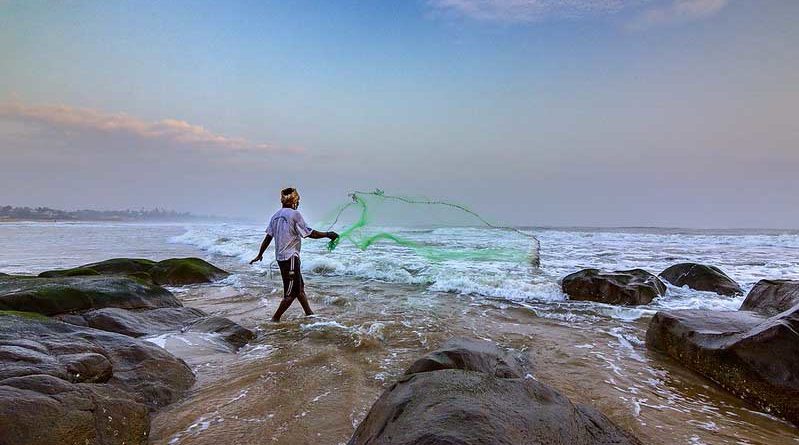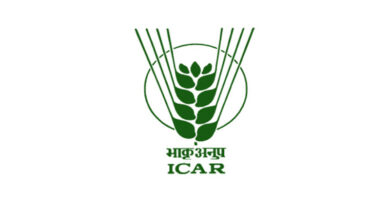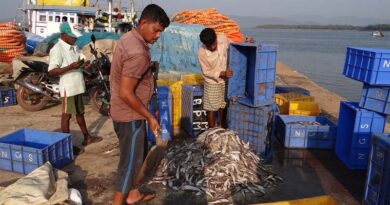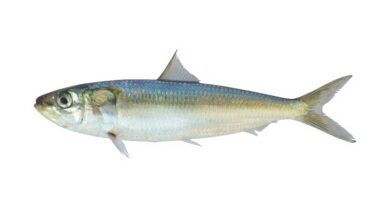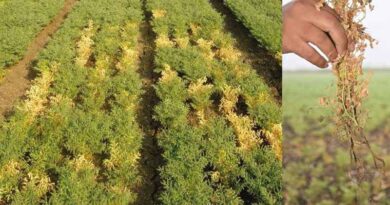Fish for Health and Wealth – The Super Food
Guest Author: Dr. Bindu R. Pillai, Director, ICAR-Central Institute of Freshwater Aquaculture, Bhubaneswar, Odisha
29 June 2020, New Delhi: Fish is one of the protein rich foods that is not only healthy but tasty also. Unlike other non-veg foods such as chicken and mutton, fish contains easily digestible high quality proteins. Fish contains omega-3 fatty acids and essential vitamins such as D and B2 (riboflavin) besides being rich in minerals such calcium, phosphorus, iron, zinc, iodine, magnesium, and potassium. These omega-3 fatty acids are extremely significant for the proper functioning of the vitals of human beings like brain and eyes, which is why it is also recommended to expecting mothers.
The prevalence of heart disease in India has increased by over 50% in last three decades causing 17·8% of total deaths. With the change in lifestyles, increase in the consumption of junk foods and unhealthy fats has sharply spiked the probability of getting heart related ailments. Therefore, it is important to include foods rich in omega-3 fatty acids like DHA and EPA in our diet. Also, World Health Organization recommends regular fish consumption (1-2 servings per week) to prevent coronary heart diseases. Owing to its nutritional superiority, fish is termed as the “Super food of the 21st century” and fish as a health food plays an important role in the wellbeing of the human society.
Freshwater Aquaculture – The Panacea
Freshwater aquaculture in India has evolved from a state of homestead activity in few pockets of Eastern Indian states during 1950s to the present state of a vibrant enterprise that has spread across the country. The total inland fish production has witnessed phenomenal increase from the meagre 0.75 MMT in 1950-51 to 8.76 MMT in 2017-18. Indian major carps (Rohu, Catla and Mrigal) and Catfishes are the important groups of fish species cultured in the country.
Consequent upon the development of induced breeding protocol by the ICAR in 1950’s, farmers in India have developed their expertise in freshwater aquaculture. As states like Andhra Pradesh and West Bengal are now combinedly producing about 40 percent of the total inland fish production and exporting to different parts of the country. However, some of the states with huge potential are lagging behind in emulating such feat. For example, states like Madhya pradesh which has around 2.87 lakh ha waterbodies area comprising of rivers, canals, reservoirs and ponds & tanks produced only 1.61 lakh tonnes of fish last year.
Trend in production follows the consumption, as per the latest NSSO reports, per capita fish consumption of Madhya pradesh is just around 500 grams per year only. There is a vast scope to increase the land-based aquaculture and improve the fish productivity and create sustainable employment opportunities for the youths in the state through well-planned development programmes. For a beginner, aquaculture is a simple farming technique to grow the fish in confined conditions like in a pond. For successful fish farming, good quality fish seed needs to be collected from hatcheries and stocked in well prepared ponds having 5 to 6 feet water depth. These fishes are to be fed daily with pelleted or farm made feeds and reared for about 8-10 months with proper care and maintenance. Once the fishes are reaching to their marketable size, fishes can be harvested, sold to the consumers with a decent profit margin. In addition, there is a huge market in ornamental fish system which is ironically underutilized in our country.
ICAR-CIFA for Blue Revolution
ICAR – Central Institute of Freshwater Aquaculture, Bhubaneswar under the aegis of Indian Council of Agricultural Research, New Delhi is the premier research institute in the country undertakes research on basic, strategic and applied aspects of freshwater aquaculture. During the 32 years of its existence, the institute has developed popular genetically improved fish & prawn breeds, scientific fish farming protocols, portable hatchery models, cost-effective feed formulations, disease diagnostic kits, aqua medicines etc. Some of the notable technologies like Jayanti Rohu and freshwater prawn developed through selective breeding by the institute has the potential to transform freshwater aquaculture in the country.
In order to increase the reach of our technologies to a greater mass and create more number of aquaprenuers, the institute has launched a user friendly android mobile app named “IndAqua”. Through this app, the users can learn the scientific fish farming protocols of more than nine predominant varieties of fishes including major carps, minor carps, freshwater prawn, catfishes, murrels, freshwater pearl and ornamental fishes. Moreover, the users can ask any questions and clarify their doubts from renowned aquaculture experts from the institute through an interactive feature called “AquaXpert”, inbuilt in the app. There is also a trade directory to source inputs and other services related to aquaculture. Apart from these frequently asked questions, details on Govt schemes are also provided. The app is absolutely free to use by any user. The app can be downloaded from the android play store by searching “IndAqua” or by scanning the QR code
(This article by Dr. Bindu R. Pillai, Director, ICAR-Central Institute of Freshwater Aquaculture, Bhubaneswar, Odisha on behalf of the institute emphasizes fish as a health food and fish farming as a promising entrepreneurship for rural youths)

